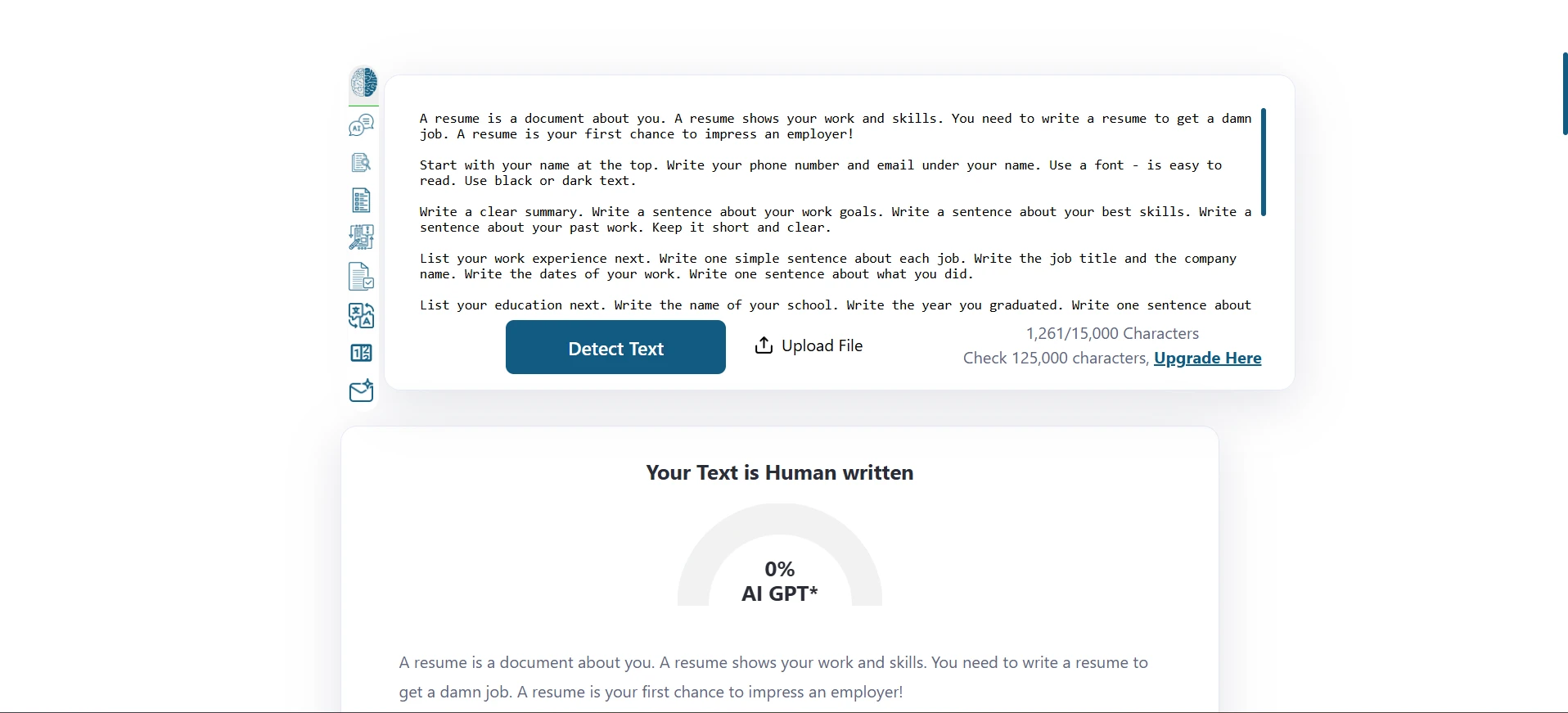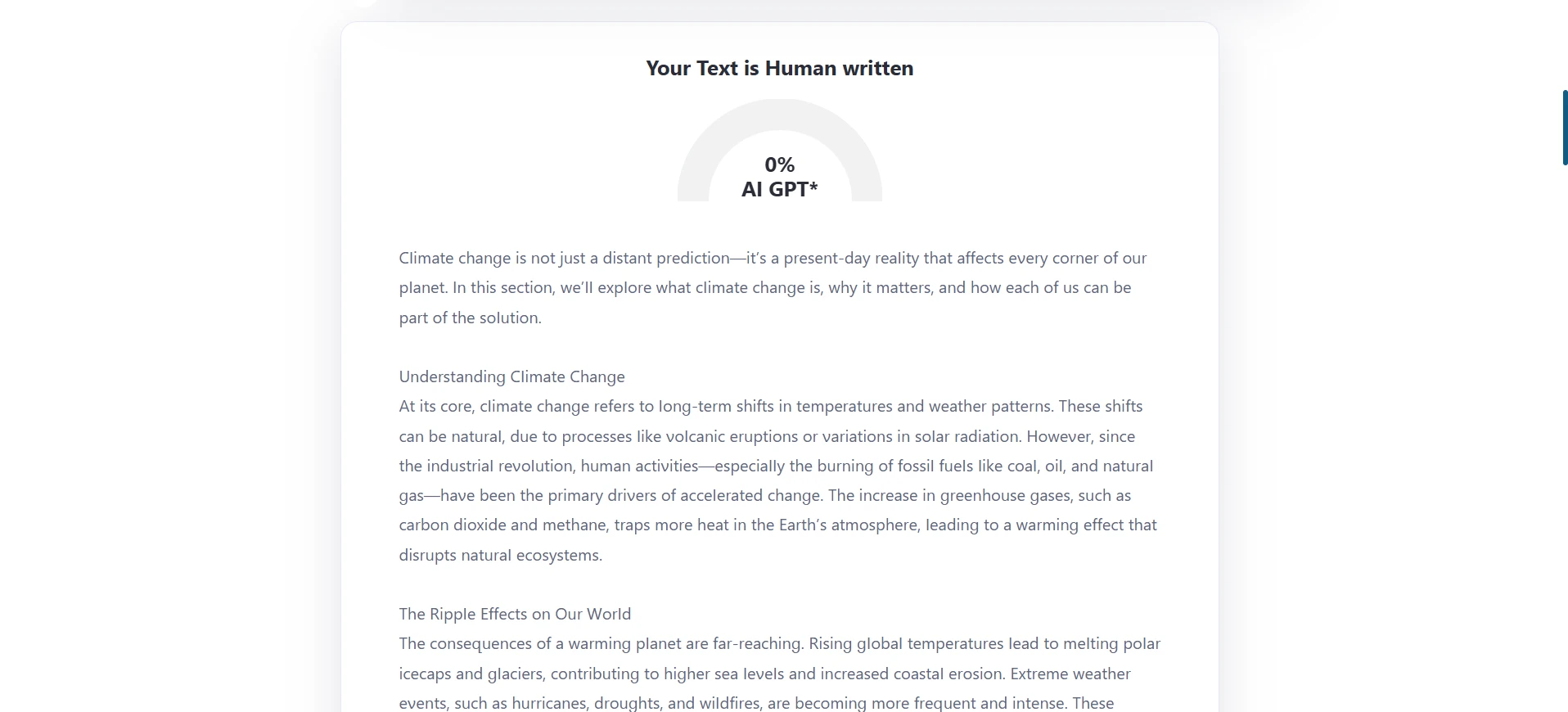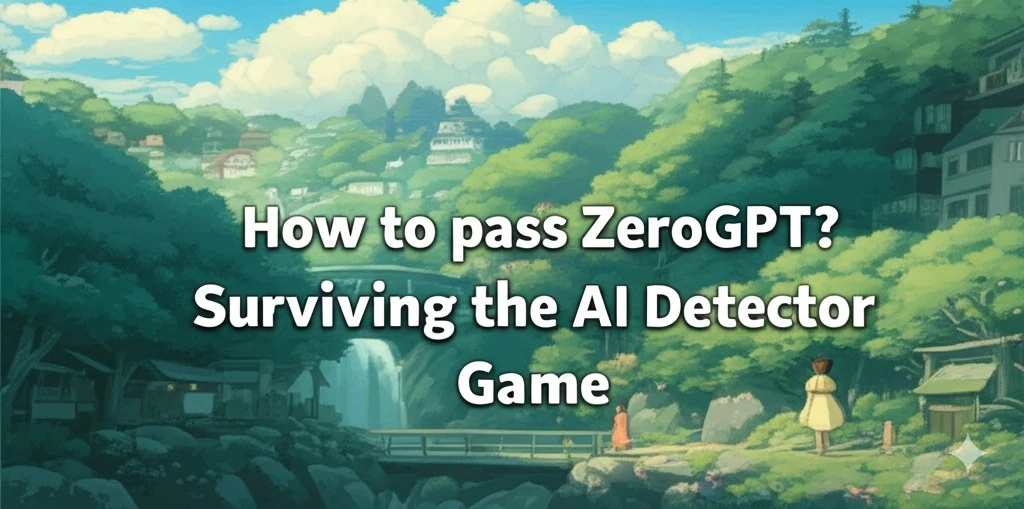As we all know, AI detectors are becoming a real pain in the neck for anyone trying to get their work through. ZeroGPT, in particular, is absolute worst of the lot – it’s super sensitive to perfect English and grammar. Even if you slightly mix punctuation styles, miss a few punctuation marks or use wrong ones, it gets easily thrown off and shows the text as human-written. So if you always want to stay ahead of ZeroGPT then you need to use dedicated paraphrasers like Deceptioner. Keep reading as we dive into some practical tricks that can help you bypass ZeroGPT’s nitpicky gaze.
Why does ZeroGPT flag AI-generated text so easily?
The basic thing is that AI-produced content is often too perfect – minimal grammatical errors, consistent word usage, and a flat, repetitive structure. ZeroGPT picks up on this because it expects human writing to be a bit messy, with the occasional error or inconsistent punctuation. The detector likes text that’s overly smooth and polished, which is why you need to deliberately introduce some quirks if you want to pass it off as human.
Techniques to Bypass ZeroGPT
1. Mess Around with Punctuation and Grammar
One of the easiest tricks is to intentionally play with punctuation. Replace “and” with “&” randomly. Don’t use tools like Grammarly because they fix the very mistakes that help you get past ZeroGPT. The detector is very sensitive to perfect style, so a few minor errors here and there can actually help. For instance, sometimes adding a comma where it doesn’t belong or switching between British and American English spellings will throw it off. It may seem odd, but trust me, a bit of inconsistency can go a long way!
2. Don't use compound sentences

As stupid as it may sound, writing simple sentences with 5-10 words here and there can be extremely effective against ZeroGPT. Short and simple sentences mimic the natural flow of human thought – unlike AI-generated content that tends to have a steady rhythm and complexity. I’ve tested this method myself and it seems to lower the detector’s confidence, even if the result sounds a bit odd at times. Remember, it may appear like a 7-year-old wrote it, but hey, sometimes you really don't have a way.
3. Modify Your Writing Style
Don’t stick to one rigid style. Switch between active and passive voice unpredictably, use redundancy occasionally, and don’t be afraid to include slight grammatical imperfections. This not only disrupts the patterns that AI models rely on but also makes your writing look more like it was produced by a human who isn’t obsessively editing every sentence. Try reading blogs, posts, or even tweets from everyday writers and incorporate some of their quirks into your own style.
4. Use a Dedicated AI Text Humanizer Like Deceptioner
If you can spare a bit of cash or don’t mind giving it a try, then use a specialized AI text humanizer such as Deceptioner. This tool is purpose-built to rephrase your content in a way that looks natural, introducing a healthy dose of minor errors and varied punctuation. It’s continually updated to stay ahead of detectors like ZeroGPT. In my experience, Deceptioner has outperformed other rewriters when it comes to bypassing overly sensitive AI detectors.
5. Experiment with Homoglyphs (Use with Caution)

I really hate this technique but it works almost all the time. Essentially, you substitute some English letters with their lookalikes – for instance, replacing the letter “a” with “а” (the Cyrillic version) in a few non-critical spots. It’s extremely hard to spot visually, but it can be enough to disturb algorithms that are expecting perfect consistency. Just be careful though – if you overdo it, your text might look weird when checked in spellcheck.
6. Don’t Overdo the Perfection
Here’s a subtle tip: AI detectors like ZeroGPT flag text that’s too polished. So, if you have a tendency to edit your work to perfection, hold back a little. Allow some mild, natural errors to slip through. Whether it’s a misplaced comma, a run-on sentence, or mixed punctuation styles, these “mistakes” are enough to throw off ZeroGPT.
I’ve tried countless methods in my own work and let me tell you – ZeroGPT just isn’t reliable. Especially when I write on topics like health and wellness, environment, or pets – it ends up throwing tons of false positives. I’ve seen texts that are 100% human-written flagged because they contain natural human inconsistencies. That’s why I now personally rely on tools like Winston AI and Originality AI when I need a second opinion. In short, ZeroGPT is a joke when it comes to accurately judging human versus AI content.
Frequently Asked Questions
Q1. How does ZeroGPT determine if text is AI-generated?
A: ZeroGPT heavily relies on factors like perfect grammar, low perplexity, and consistent sentence structure. If your writing is too neat, it flags it as AI-generated.
Q2. Should I use grammar checkers like Grammarly when trying to bypass ZeroGPT?
A: No, don’t use them! Grammar checkers correct the very mistakes that make your text appear human. Keep your errors intact to confuse the detector.
Q3. Is using a tool like Deceptioner really worth it?
A: Absolutely. In my experience, Deceptioner has offered the most reliable results in making your content look naturally human, while staying ahead of ZeroGPT’s detection algorithms.
Q4. Can intentional punctuation mistakes really help?
A: Yes, mixing up punctuation styles – like using both Oxford commas and inconsistent comma placements – is a proven method to trip up ZeroGPT’s statistical models.
The Bottom Line
AI detectors are in their early days, and it’s a constant cat and mouse game between them and content creators. If you want to pass ZeroGPT, you need to embrace imperfection. Introduce minor grammatical errors, mix up your punctuation, use shorter sentences, and consider leveraging dedicated humanizers like Deceptioner. Remember, no one method is foolproof, and if you’re serious about avoiding false positives, you might want to switch to detectors like Winston AI or Originality AI which provide a better user experience without being loaded with ads. At the end of the day, developing your own unique writing style might be the best long-term strategy.



